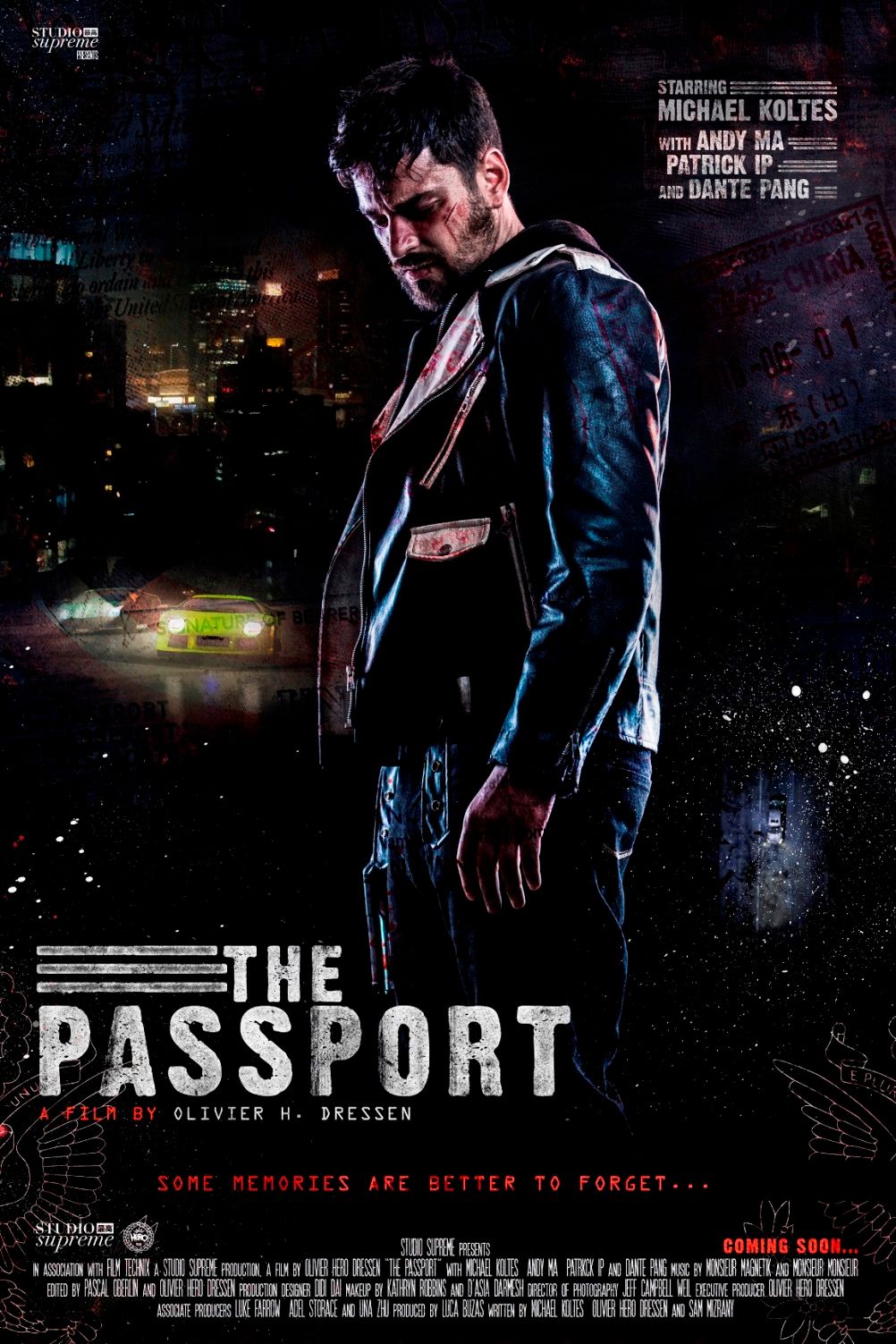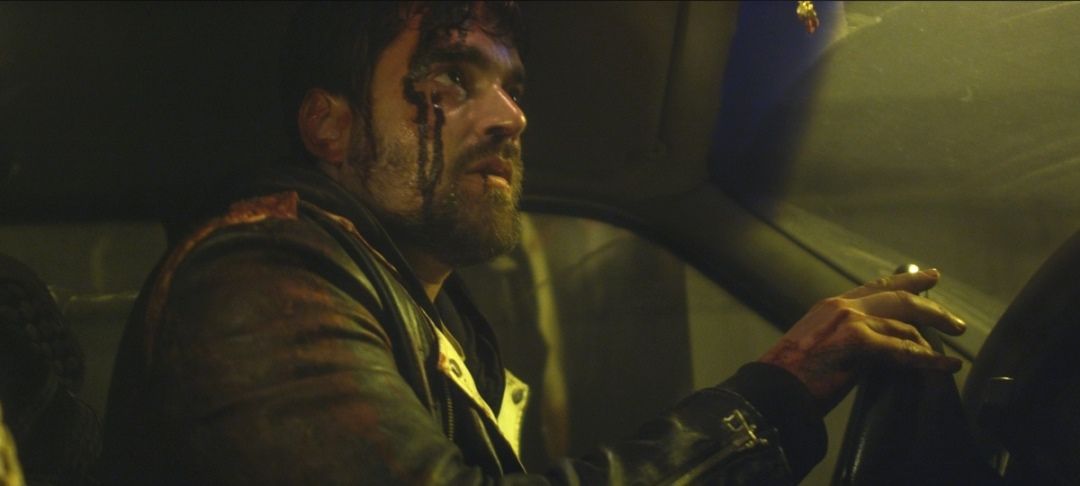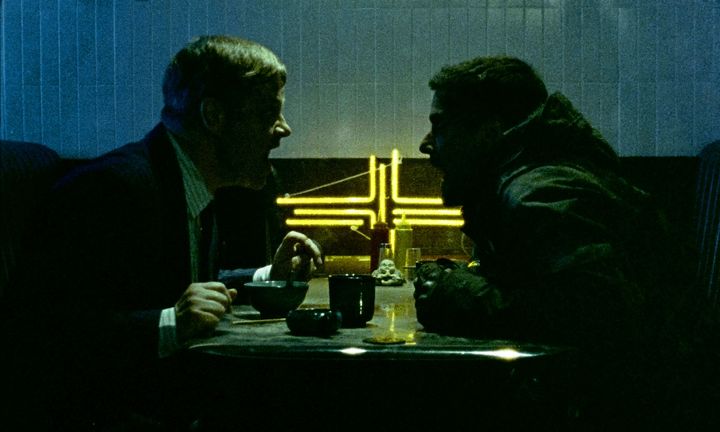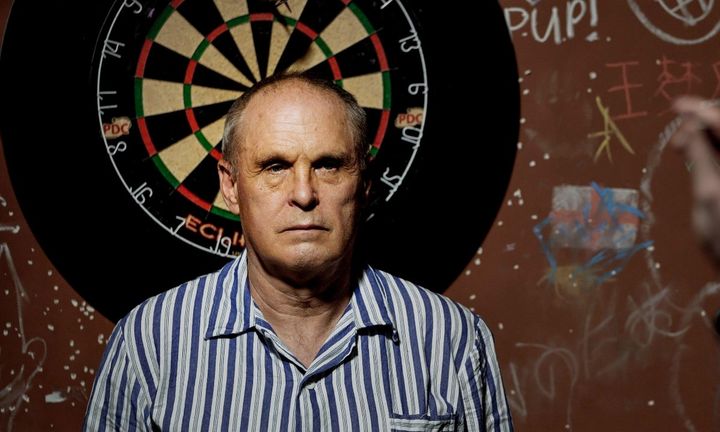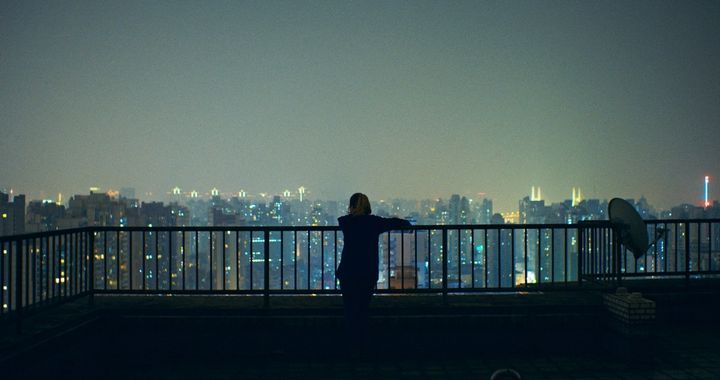The Passport tells the dark tale of an amnesiac on a desperate attempt to figure out who he really is. Director Olivier Hero Dressen and actor Michael Koltes share their thoughts on what makes for a good story and the making of their award-winning short film.
The Passport stars Michael Koltes as a guy who wakes up on the sidewalk one night with a bad case of retrograde amnesia. Battered, bloodied, and with only a few brief flashbacks to go on, his character sets out to recall the events leading up to his current state and, in the process, to reconstruct his identity.
Shot in Shanghai, the project came together under the creative guidance of filmmaker Oliver Hero Dressen. Prior to moving into directing, Dressen got his creative start in illustrating and animation. And, while that might not sound like anything new in the world of filmmaking, it hasn’t made the lessons learned from those experiences any less valuable.
“Having an understanding of different types of media definitely allowed me to get involved in many stages on this project,“ he says. “Coming from comics teaches you how to tell a story and be sure you get the shots you need to make it happen. Having a background in animation also teaches you a lot about timing and pacing.”
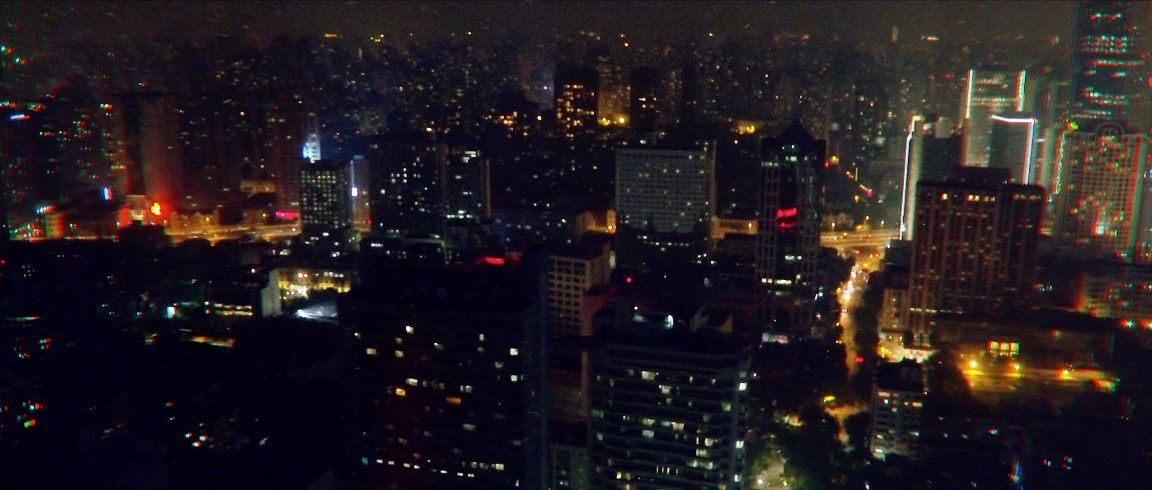
Since launching his creative career, Dressen has tackled a variety of visual art forms, including music videos, commercials, and advertisement. As he explains, the experience he’s gained working with various media has helped him progress in more ways than one.
“Advertising is more about the look and the image quality on top of working with a limited amount of time,” he explains. “And, of course, it gives you the tools to sell the story and bring in other amazingly creative people with you on the journey.”
On The Passport, that journey began when Dressen linked up with Koltes—who also co-wrote the film—while looking for the right lead on another project he was developing.
"I think good stories are true or connected with who you are and the message or feelings you want to share with others."
“We met through a mutual friend online as ‘good people to work with’, but communicated through Facebook for a couple years before actually meeting,” recalls Koltes. “I knew I was coming to China, so I suggested we finally do something together… the rest is history.”
For Dressen, working with Koltes to develop the idea for the film also allowed him to exercise some of his personal philosophy of what makes a story worth sharing.
“For my part, I think it’s a mixture of personal experiences mixed with things I liked growing up as a kid,” he says. “I think good stories are true or connected with who you are and the message or feelings you want to share with others.”
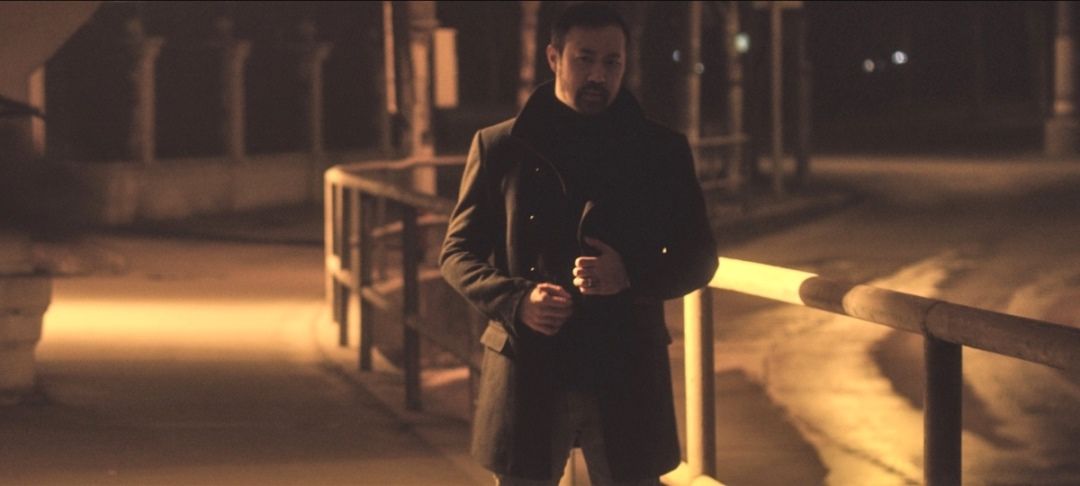
As Koltes adds, when it came to writing The Passport, constructing an engaging plot meant more than just writing in a bunch of twists and reveals. It also meant shading the story world in a way that would help them challenge the audience’s point-of-view.
“Everybody likes to be challenged in a mental capacity when watching a film,” he states. “Life, in general, is always full of surprises and never straight forward.”
After settling on the initial concept, a series of subsequent brainstorming sessions and numerous revisions finally led the pair to a story about a guy who wakes up on the street one night with no recollection of his own identity.
"Everybody likes to be challenged in a mental capacity when watching a film."
“It was written organically as a back-and-forth between us,” Dressen says. “So, the main character developed more and more layers as we were thinking about him.”
Despite the level of detail the pair went into in developing the idea, Koltes points out there were still practical limitations on what really needed to be fleshed out ahead of time for the purposes of a short-form project.
“When you write a film you don’t need to write a bunch of unnecessary backstory,” he says. “Instead, we tried to focus on what actually affects the story and the main character.”
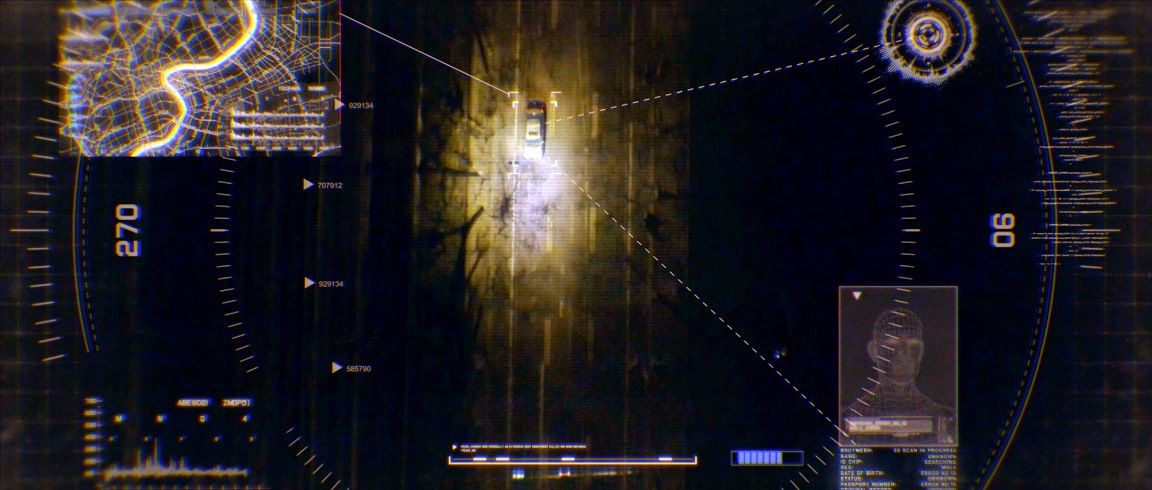
For Koltes, working on The Passport also meant separating out his role as an actor from his role as a writer—especially when it came to the process of how his character evolved on the page.
“When I write a character I generally don’t think, ‘This character has to be like me,’ at all,” he says. “Maybe initially you look for a character you might like to play or could play well, but once you start writing it becomes a character that has a life of its own which you approach as an actor separately once the writing is finished.”
Nevertheless, working as a writer on the project warranted a different approach in terms of how he started his preparations for his role as an actor.
"The main thing is discovering what drives the character and what he’s afraid of. With those two you can tell a lot about a man."
“I guess the main difference is the amount you already know about the story and the character’s backstory,” Koltes states. “For other films, you get a lot from reading the script or talking to the writer or director. That said, I do, in general, do research there where it’s needed.”
Whether or not he’s involved in the writing process, Koltes explains that getting into a role as an actor sometimes comes down to knowing just two simple things about your character.
“The main thing is discovering what drives the character and what he’s afraid of. With those two you can tell a lot about a man,” he says.
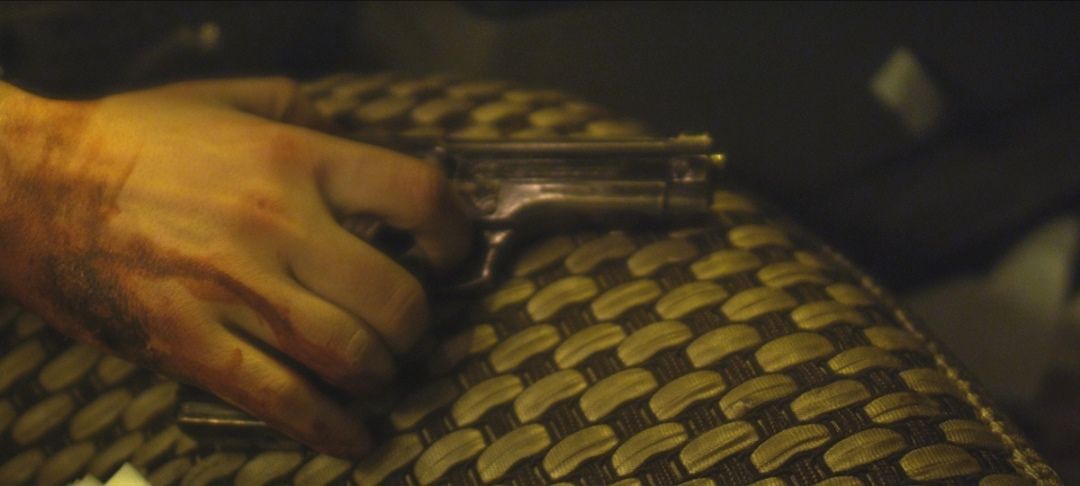
Like Dressen, Koltes comes from a similarly diverse creative background—including music, theater, writing, and even video game work. And, while he admits every experience he has had has been special, it is clear there is one job he enjoys doing the most.
“I think acting has to be my favorite because you get to experience a lot of a few people’s lives in a short period of time and nothing is ever the same,” he says. “Don’t get me wrong, it’s definitely not an easy profession. But, when you get the right role, it makes it all worth it.”
In addition to writing and directing the film, Dressen handled a wide range of responsibilities—including the CGI and digital effects—on The Passport. As such, the project gave him the chance to act on his love for combining different creative elements into his work.
"It involves all the things I love—finding ideas, sketching concepts, editing, sound, special effects—all for the sake of telling a good story."
“Every part is exciting for me. It’s why I love doing films,” he says. “It involves all the things I love—finding ideas, sketching concepts, editing, sound, special effects—all for the sake of telling a good story.”
That said, regardless of the tools available, he emphasizes the fact that making a successful film all starts with finding the right story to tell and deciding how you want to approach it.
“Everybody has interesting stories. Every life has interesting stories in itself,” Dressen states. “It’s all about the angle you choose to tell it from and what chord you play to highlight and share the right feelings with your audience.”
